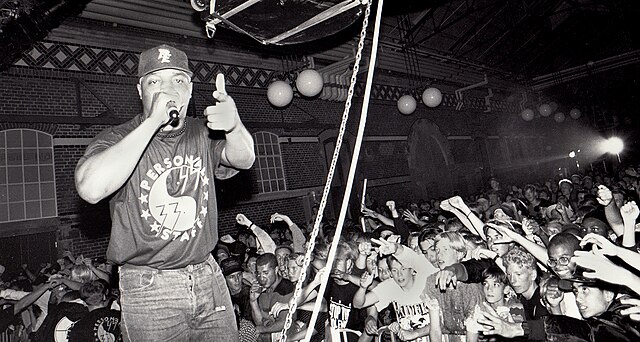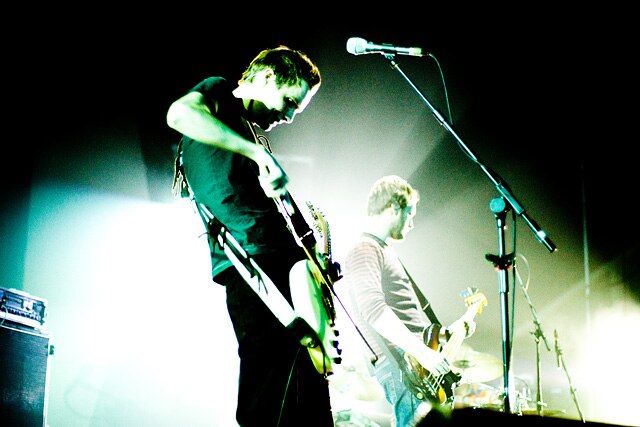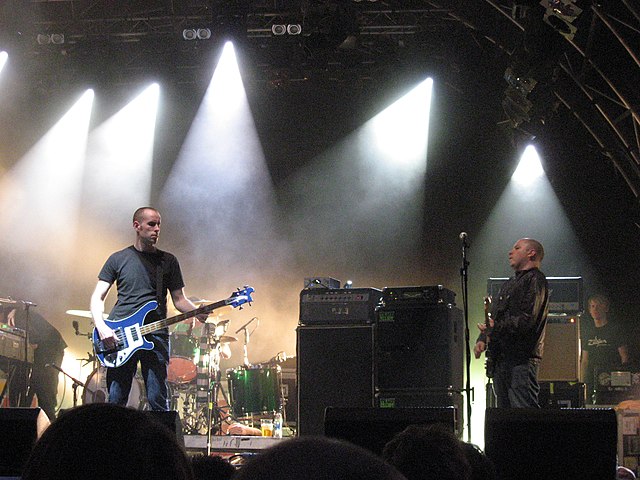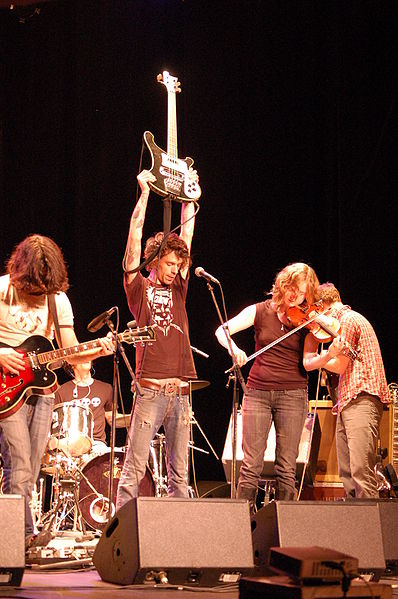Disco Inferno were an English experimental rock band active in the late 1980s and the 1990s. Initially a trio of guitar, bass, and drums performing in an identifiable post-punk style, the band soon pioneered a dynamic use of digital sampling in addition to standard rock instruments. While commercially unsuccessful during their existence, the band is considered to be a key post-rock act.
Disco Inferno. From left to right: Ian Crause, Rob Whatley and Paul Wilmott
The production style of Public Enemy and the Bomb Squad was an important influence on Disco Inferno.
Post-rock is a form of experimental rock characterized by a focus on exploring textures and timbres, as well as non-rock styles, with less emphasis on conventional song structures or riffs. Post-rock artists typically combine rock instrumentation with electronics. The genre emerged within the indie and underground music scene of the 1980s and early 1990s. However, due to its abandonment of rock conventions, it began to increasingly show little resemblance musically to conventional indie rock at the time, borrowing instead from diverse sources including ambient, electronica, jazz, krautrock, dub, and minimalist classical, with these influences also being pivotal for the style of ambient pop.
Post-rock group Sigur Rós performing at a 2005 concert in Reykjavík.
Post-rock group Mogwai performing at a 2007 concert.
Post-rock group Do Make Say Think performing at a May 2007 concert.





